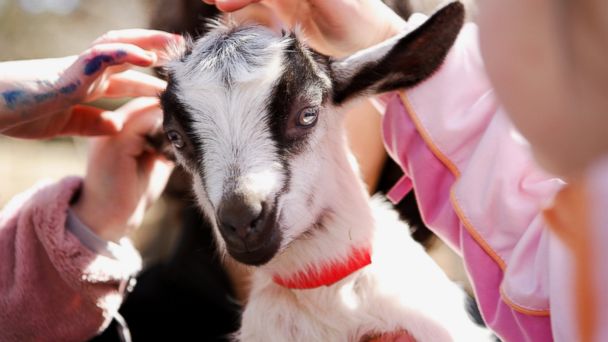E. Coli Outbreak Tied to Minn. Pumpkin Farm's Petting Zoo

All three of the infected children reported contact with cattle or goats. (Image credit: Getty Images)
Minnesota health officials are investigating an outbreak of E. coli tied to a pumpkin farm's petting zoo.
Three children between the ages of 15 months and 7 years contracted the dangerous O157:H7 strain of E. coli infection after petting animals at Dehn's Pumpkins in Dayton, Minn., according to the state's Department of Health. One child has been hospitalized with hemolytic uremic syndrome, or HUS, a complication that can lead to kidney failure. The other two children are recovering, the state health department said.
"This is a peculiar strain of E. coli," said Dr. William Schaffner, chairman of prevention at Vanderbilt University Medical Center in Nashville, Tenn., describing the initial infection symptoms as intestinal cramps and diarrhea. "The intestinal infection is bad enough. But what can follow is this kidney problem, which can take a week to three weeks to appear."
Parents Sue County Fair, Petting Zoo Over Son's E.Coli Death
The O157:H7 strain is commonly carried by cattle, according to Schaffner. It was the cause of the 1993 Jack in the Box outbreak linked to tainted hamburgers that sickened roughly 600 people and killed four children. But the strain can also spread to people through contact with contaminated surfaces, such as animal coats and petting zoo cages.
"Rather than outlawing these fairs, which has actually been discussed in some jurisdictions, the goal has been to emphasize the importance of hand hygiene," said Schaffner, explaining how hand sanitizer can be a parent's best friend at a petting zoo that lacks a sink with soap. "It can reduce the risk, but every once in a while, there's going to be a small outbreak like this."
7 Foods Most Likely to Make You Sick
All three children were reported to have had some contact with cattle or goats during their visit to Dehn's Pumpkins, health officials said. The farm, which also advertises hay rides and a corn maze, has closed the petting zoo during the investigation. The pumpkin patch remains open.
Schaffner said O157:H7 can be tough to diagnose and even trickier to treat.
"It's peculiar in that it does not always cause a fever," he said, adding that antibiotics can also lead to complications. "When you kill the bacteria, they release a toxin that then gets into the bloodstream and predisposes the person to the complication of HUS. So the risk goes up, and antibiotics have really not been shown to shorten the duration of the intestinal infection."
Instead, O157:H7 is treated symptomatically, with a focus on preventing its spread to others, Schaffner said.
"Children are not the most hygienic people in the world," he said, describing the "invisible molecular fecal veneer" that can quickly expose family members to a bacterial infection. "You have to be really careful, especially when they have a bowel movement."
Calls to Dehn's Pumpkins were not immediately returned, but the company is cooperating with the investigation, according to the Minnesota Department of Health.
"It's such a wonderful autumn event in many places around the country," Schaffner said of fall fairs and petting zoos. "You just have to make it as safe as possible. Enjoy it, but be careful."